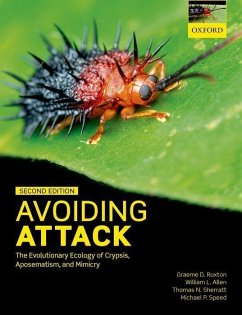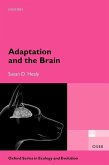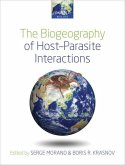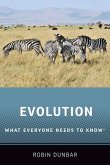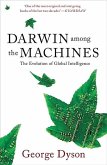Graeme D Ruxton, William L Allen, Thomas N Sherratt, Michael P Speed
Avoiding Attack
The Evolutionary Ecology of Crypsis, Aposematism, and Mimicry
Graeme D Ruxton, William L Allen, Thomas N Sherratt, Michael P Speed
Avoiding Attack
The Evolutionary Ecology of Crypsis, Aposematism, and Mimicry
- Broschiertes Buch
- Merkliste
- Auf die Merkliste
- Bewerten Bewerten
- Teilen
- Produkt teilen
- Produkterinnerung
- Produkterinnerung
This book discusses the mechanisms by which prey avoid predator attacks, and how such mechanisms have evolved through natural selection.
Andere Kunden interessierten sich auch für
![Adaptation and the Brain Adaptation and the Brain]() Susan D HealyAdaptation and the Brain70,99 €
Susan D HealyAdaptation and the Brain70,99 €![The Biogeography of Host-Parasite Interactions The Biogeography of Host-Parasite Interactions]() The Biogeography of Host-Parasite Interactions103,99 €
The Biogeography of Host-Parasite Interactions103,99 €![Human Flourishing in an Age of Gene Editing Human Flourishing in an Age of Gene Editing]() Human Flourishing in an Age of Gene Editing64,99 €
Human Flourishing in an Age of Gene Editing64,99 €![The Nature of the Hydrogen Bond The Nature of the Hydrogen Bond]() Gastone GilliThe Nature of the Hydrogen Bond94,99 €
Gastone GilliThe Nature of the Hydrogen Bond94,99 €![Evolution Evolution]() Robin DunbarEvolution14,99 €
Robin DunbarEvolution14,99 €![Darwin Among the Machines Darwin Among the Machines]() George B DysonDarwin Among the Machines16,99 €
George B DysonDarwin Among the Machines16,99 €![Martian Genesis Martian Genesis]() Herbie BrennanMartian Genesis8,99 €
Herbie BrennanMartian Genesis8,99 €-
-
-
This book discusses the mechanisms by which prey avoid predator attacks, and how such mechanisms have evolved through natural selection.
Hinweis: Dieser Artikel kann nur an eine deutsche Lieferadresse ausgeliefert werden.
Hinweis: Dieser Artikel kann nur an eine deutsche Lieferadresse ausgeliefert werden.
Produktdetails
- Produktdetails
- Verlag: Hurst & Co.
- 2nd edition
- Seitenzahl: 304
- Erscheinungstermin: 26. September 2018
- Englisch
- Abmessung: 247mm x 189mm x 19mm
- Gewicht: 684g
- ISBN-13: 9780199688685
- ISBN-10: 0199688680
- Artikelnr.: 53018358
- Herstellerkennzeichnung
- Produktsicherheitsverantwortliche/r
- Europaallee 1
- 36244 Bad Hersfeld
- gpsr@libri.de
- Verlag: Hurst & Co.
- 2nd edition
- Seitenzahl: 304
- Erscheinungstermin: 26. September 2018
- Englisch
- Abmessung: 247mm x 189mm x 19mm
- Gewicht: 684g
- ISBN-13: 9780199688685
- ISBN-10: 0199688680
- Artikelnr.: 53018358
- Herstellerkennzeichnung
- Produktsicherheitsverantwortliche/r
- Europaallee 1
- 36244 Bad Hersfeld
- gpsr@libri.de
Graeme Ruxton is Professor of Evolutionary Ecology at the University of St Andrews, Scotland. He has broad interests in behavioural ecology, but mostly focusses on predator-prey interactions. His main means of investigation is in various types of theoretical modelling, but this is generally linked to empirical data collection in the field or laboratory. His interests are wide in terms of ecosystems and taxonomy too, and he has occasionally published speculations on the ecologies of extinct species. Graeme's interest in predator-prey interactions has grown to include between-species communication more generally and he has a strong interest in how plants interact with animal antagonists and mutualists. William Allen is an evolutionary ecologist who investigates antipredator defences at macroecological and macroevolutionary scales. His interdisciplinary training at the University of Bristol in human, animal, and machine vision has allowed him to apply novel techniques to understanding the visual ecology of defences in diverse taxa, including felids, reptiles, and ungulates. Other research interests include intraspecific visual signalling in primates and life history evolution. He currently teaches courses on sensory ecology and the evolution of tetrapods. Tom Sherratt has a broad range of interests in the fields of behavioural and evolutionary ecology, notably predator-prey interactions, the evolution of senescence and the evolution of cooperation. Members of the Sherratt lab conduct both field and laboratory experiments, but they also attempt to develop and test biologically relevant theory. Tom also teaches courses in statistics and computer modelling. Michael Speed is an evolutionary biologist with longstanding interests in predator-prey relationships, evolution, and phylogenetics. He studied at Leeds University, where he began his work on the evolution of signalling in mimicry systems and currently lectures in evolution and behaviour at the University of Liverpool, where he is also Head of the School of Life Sciences.
Introduction
Chapter summary
The sequence of a predator-prey encounter and investment across multiple defences
1: Background matching
2: Disruptive camouflage
3: Countershading
4: Transparency
5: Secondary defences
6: Aposematism
7: Müllerian mimicry
8: Advertising elusiveness
9: Batesian mimicry and masquerade
10: Startling predators
11: Deflecting the point of attack
12: Dazzle camouflage
13: Thanatosis
14: Synthesis
Chapter summary
The sequence of a predator-prey encounter and investment across multiple defences
1: Background matching
2: Disruptive camouflage
3: Countershading
4: Transparency
5: Secondary defences
6: Aposematism
7: Müllerian mimicry
8: Advertising elusiveness
9: Batesian mimicry and masquerade
10: Startling predators
11: Deflecting the point of attack
12: Dazzle camouflage
13: Thanatosis
14: Synthesis
Introduction
Chapter summary
The sequence of a predator-prey encounter and investment across multiple defences
1: Background matching
2: Disruptive camouflage
3: Countershading
4: Transparency
5: Secondary defences
6: Aposematism
7: Müllerian mimicry
8: Advertising elusiveness
9: Batesian mimicry and masquerade
10: Startling predators
11: Deflecting the point of attack
12: Dazzle camouflage
13: Thanatosis
14: Synthesis
Chapter summary
The sequence of a predator-prey encounter and investment across multiple defences
1: Background matching
2: Disruptive camouflage
3: Countershading
4: Transparency
5: Secondary defences
6: Aposematism
7: Müllerian mimicry
8: Advertising elusiveness
9: Batesian mimicry and masquerade
10: Startling predators
11: Deflecting the point of attack
12: Dazzle camouflage
13: Thanatosis
14: Synthesis

